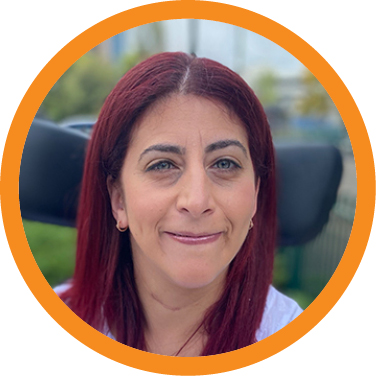It’s International Day of People with Disability, long time contributor to the work of Summer Foundation, Lynne Foreman shares her ideas and thoughts on the day.
Introduce yourself
Hi, I am Lynne. I am a disability advocate in Geelong. My disability is called arthrogryposis multiplexcongenita, and I love saying it because no-one’s ever heard of it. There are only a few of us with it in Australia!
I am in a lot of disability organisations where I help out with things. For example, the Valid conference is coming up in February, I am on the reference group, and I help guide people on the day. Part of my role in this is empowering other people with disabilities.
What does International Day of Disability mean to you?
We all come together, we are all one.
Why is International Day of People with Disability important to acknowledge?
I have always been proud that I have a disability.
We recognise everyone these days, why not recognise us!
From this recognition, I hope people understand us a bit better. I was brought up with 6 siblings, I wasn’t treated differently. I think I got out of doing the dishes once!
We might have a disability, but we can do most things. People have got to open their minds. And say just because you’ve got a disability, we can do a lot of things we just do some differently, at the end of the day, we will do it. Sometimes we get looked at and not spoken to. People can be too scared to speak with us because they may think we don’t speak, they don’t want to get embarrassed, so they speak to our support worker instead. I speak up and say you can speak to me.
The theme of IDPwD this year is ‘United in action to rescue and achieve the Sustainable Development Goals (SDGs) for, with and by persons with disabilities.’ What does this theme mean to me?
My first thought was, technology is fantastic, there is no reason why we shouldn’t do anything. There is more scope for more assistance.
There are still barriers within the able community because they don’t understand. Assumptions are made.
How can we be united?
It has improved a hell of a lot, I am 67 years old, it has improved. But some people don’t want to know – it is too hard for them. It is education really. We need to think outside the box.












